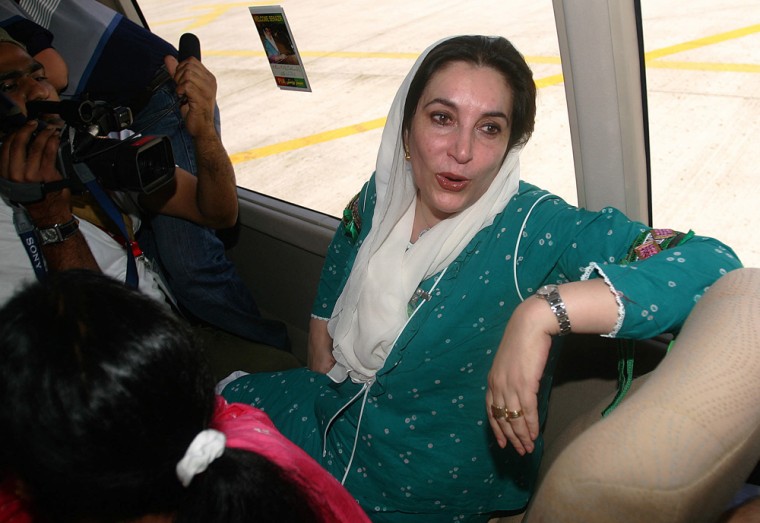Benazir Bhutto’s return is the latest chapter of a rollercoaster life that saw her become the Muslim world’s first woman prime minister, only for her two governments to fail amid allegations of corruption.
When she landed in Karachi on Thursday, she ended eight years of self-imposed exile. Now, she is hoping for a political renaissance. She will start campaigning for elections that she hopes can open the door to a record third premiership.
Born June 21, 1953, into a wealthy landowning family in southern Pakistan, Bhutto picked up the heavy political legacy of her father, Zulfikar Ali Bhutto.
The former president and prime minister sent his eldest daughter to study politics and government at Oxford and Harvard.
But his ouster in a 1977 military coup and execution over the death of a political rival put Benazir on a steep and treacherous learning curve.
Benazir was detained several times during the rule of Gen. Zia-ul Haq then released into exile in England in 1984. Two years later, she returned to lead mass rallies for the restoration of civilian government.
After Zia’s death in a mysterious plane crash in 1988, Bhutto gave birth to the first of her three children, led her party to an election victory and became the first woman to lead a modern Muslim nation.
However, she soon clashed with Pakistan’s powerful military-led establishment and her administration was dismissed 20 months later amid allegations of corruption.
Two brothers tragically die
She was re-elected in 1993. But three years later, her family suffered another blow when her brother Murtaza died in a gunbattle with police in Karachi.
Her youngest brother, Shahnawaz, had died under mysterious circumstances in France a decade earlier.
Benazir accused President Farooq Leghari of involvement in Murtaza’s death, and Leghari dismissed her second government amid fresh allegations of misrule.
After defeat at the hands of archrival Nawaz Sharif in 1996, Bhutto was hit by a deluge of corruption allegations.
She left in 1999, just before a court convicted her of corruption and banned her from politics. The verdict was later quashed, but she has stayed away.
Bhutto says she has had on-off contacts with President Gen. Pervez Musharraf since he ousted Sharif in a 1999 coup, but that only now has the general agreed to restore democracy.
Corruption case ended
An amnesty signed by Musharraf last week that quashes longstanding corruption cases against Bhutto and others has drawn criticism for allegedly encouraging more looting of state resources.
But Bhutto insists it will take some of the debilitating venom from Pakistan’s political culture and allow her to lead a democratic push against Islamic militants.
“I know I am a symbol of what the so-called ‘Jihadists,’ Taliban and al-Qaida, most fear,” she wrote in her autobiography “Daughter of the East.”
“I am a female political leader fighting to bring modernity, communication, education and technology to Pakistan.”
